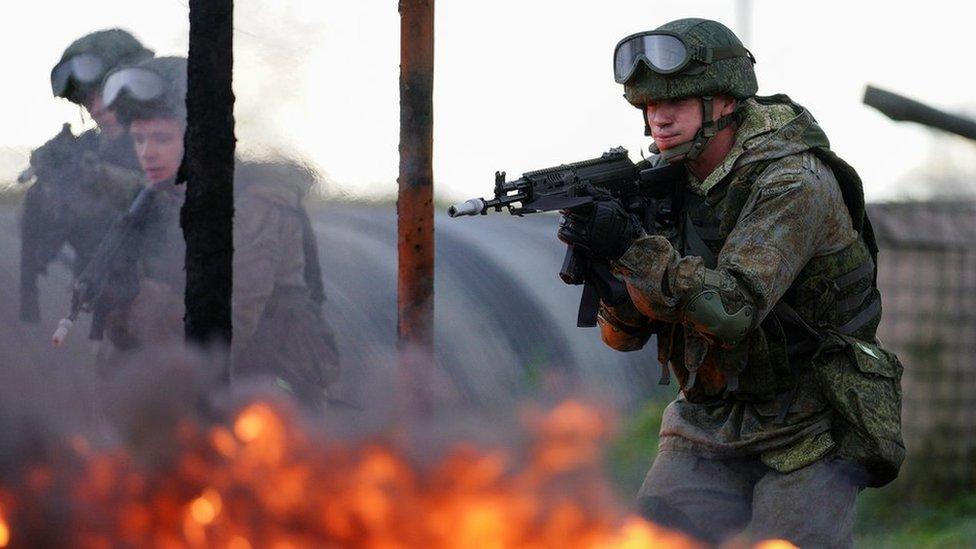Ukraine tensions: Putin tells Biden new sanctions could rupture ties
- Published
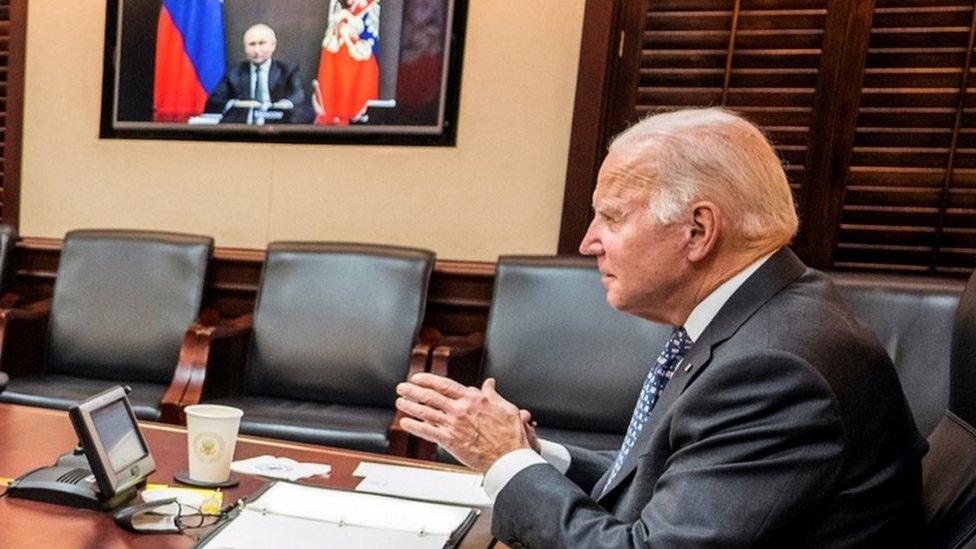
The presidents of the US and Russia held a 50-minute phone call late on Thursday
Russia's Vladimir Putin has warned his US counterpart Joe Biden that imposing new sanctions over Ukraine could lead to a complete breakdown in relations.
In a phone call late on Thursday, the Russian president said such sanctions would be a "colossal mistake".
Mr Biden, meanwhile, told Mr Putin that the US and its allies would respond decisively to any invasion of Ukraine.
The call, requested by Russia, was the pair's second such conversation this month and lasted for almost an hour.
It marked the latest effort to defuse tensions over Ukraine's eastern border with Russia, where Ukrainian officials say more than 100,000 Russian troops have been sent.
The build-up has prompted concern in the West, with the US threatening Mr Putin with sanctions "like none he's ever seen" if Ukraine comes under attack.
Russia, however, denies it is planning to invade the country and says the troops are there for exercises. It says it is entitled to move its troops freely on its own soil.
Although the two sides exchanged warnings during the call, Russian foreign policy adviser Yuri Ushakov told reporters shortly after that Mr Putin was "pleased" with the conversation. He added that it had created a "good backdrop" for future talks.
A senior US official, who spoke on condition of anonymity, said the tone had been "serious and substantive."
"President Biden reiterated that substantive progress in these dialogues can occur only in an environment of de-escalation," White House Press Secretary Jen Psaki said.
"He made clear that the United States and its allies and partners will respond decisively if Russia further invades Ukraine," she added.
US and Russian officials are set to meet for in-person talks in Geneva next month, and the White House said Mr Biden urged his Russian counterpart to pursue a diplomatic solution.
In a holiday message before Thursday's call, Mr Putin told Mr Biden he was "convinced" the pair could work together based on "mutual respect and consideration of each other's national interests".
His spokesman, Dmitry Peskov, said Moscow was "in the mood for a conversation".
"We believe that only through talks is it possible to solve all the immediate problems that we have in abundance between us," Mr Peskov added.

Deep concern in Washington

White House officials sound calm when they talk about Ukraine, at least while speaking outside of the West Wing.
The phone call between President Biden and President Putin on Thursday, as a senior administration official told reporters in the early evening, was "a serious, substantive, conversation".
That official spoke in a measured voice about the talks, and sounded even-tempered when he spoke about the threat from Russia. Behind the scenes, though, he and others in the White House are deeply worried about a possible invasion of Ukraine.
The signs from Russia are "ominous", as one insider told me, and so the diplomatic pace has been stepped up.
On Thursday, at least, the two leaders were talking and those at the White House see this as a positive sign. For now. they are trying to do everything they can to make sure they keep talking into the new year.

Ukraine's defence minister told parliament at the start of December that Russia had massed tens of thousands of troops near the border, and could be gearing up for a large-scale military offensive at the end of January.
Russia has argued the military build-up at the border is a protective measure against Nato, the Western military alliance. It wants legally binding guarantees that Nato will not expand further east, and that certain weapons will not be sent to Ukraine or any neighbouring countries.
The US has rejected what it styles as a Kremlin bid to control the future of independent countries.
Ukraine has not been offered Nato membership, but has close ties with the bloc.
Russian troop build-up: View from Ukraine front line
Tensions between Russia and Ukraine are nothing new. In 2014, Russia annexed Ukraine's Crimean Peninsula and soon after started to back a separatist insurgency in Ukraine's east that has seen some 14,000 people killed in periodic fighting.
Washington and its European allies have warned Russia to expect severe economic sanctions if troops do cross into Ukraine again.
- Published25 December 2021
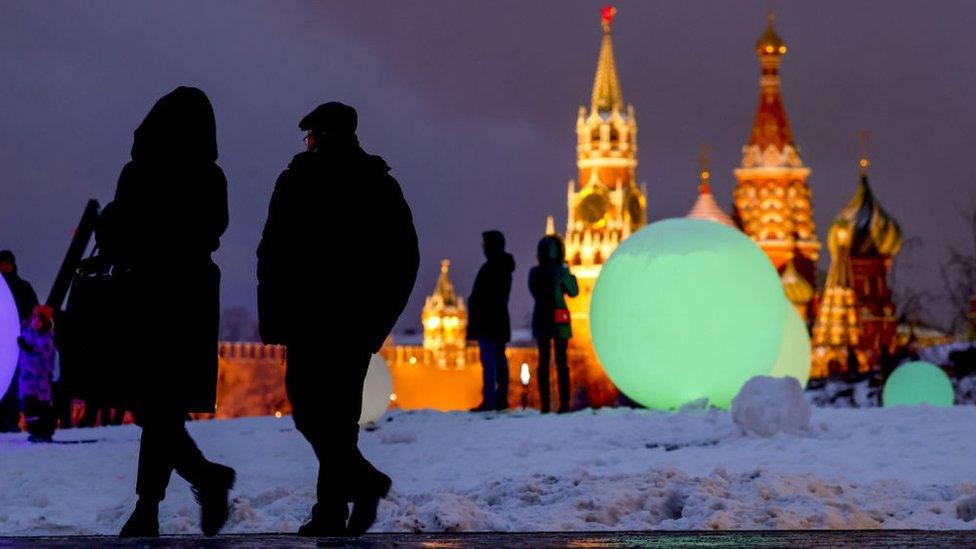
- Published23 December 2021
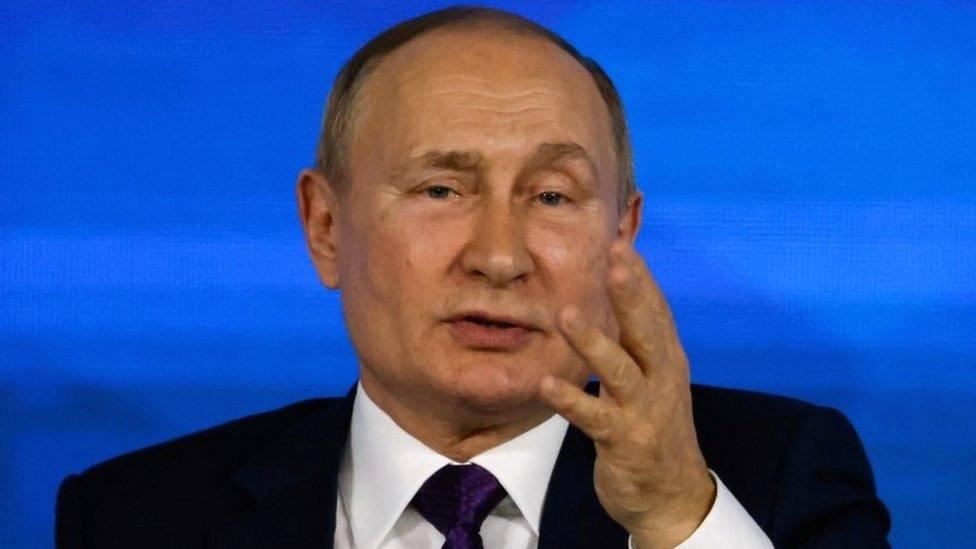
- Published24 February 2023
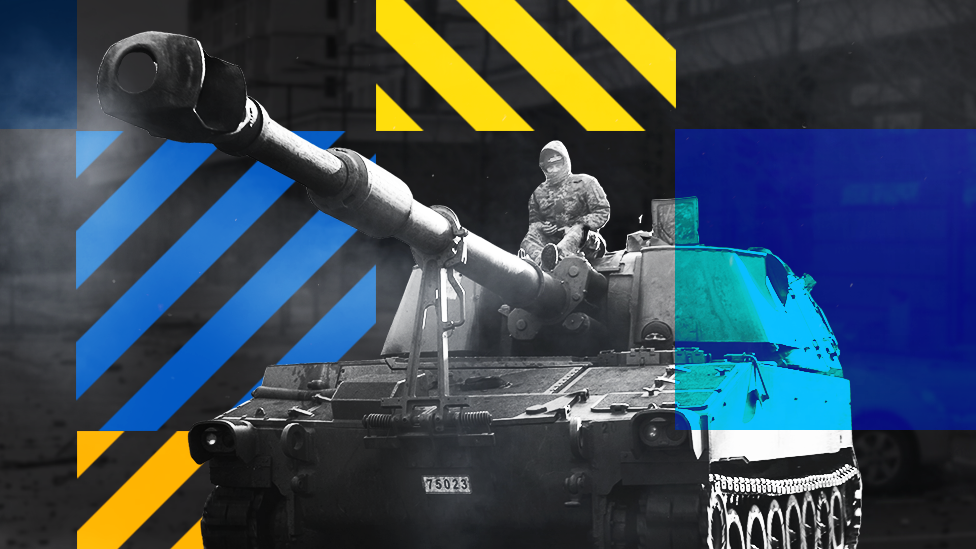
- Published20 December 2021
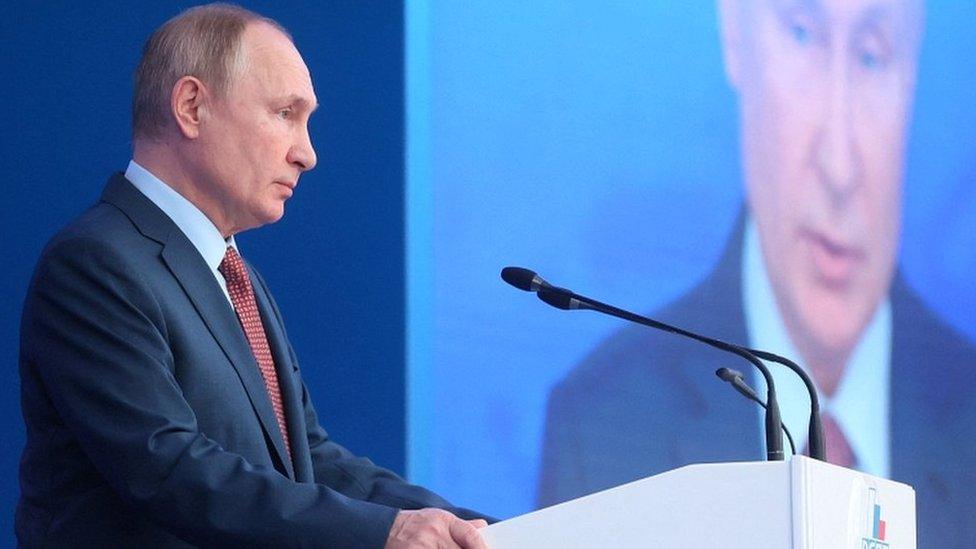
- Published4 December 2021
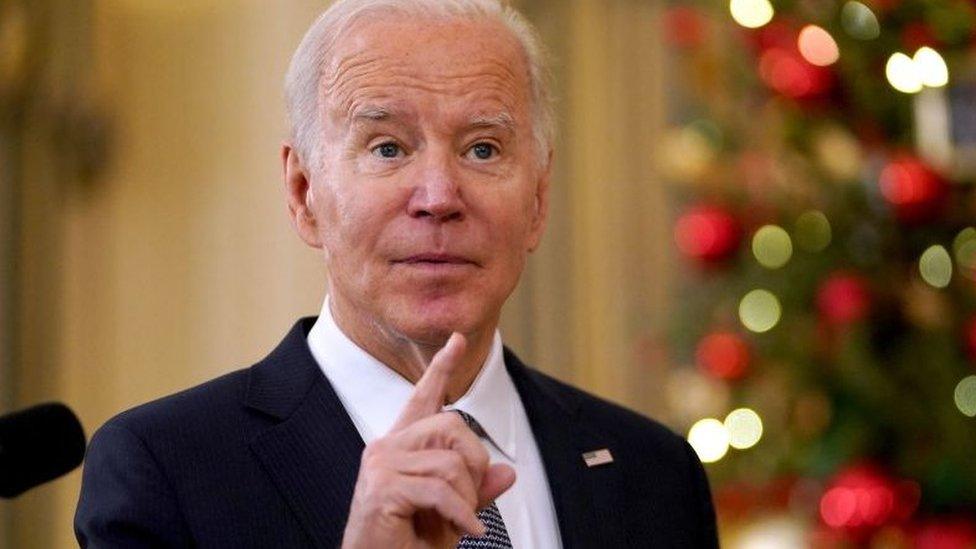
- Published27 November 2021
